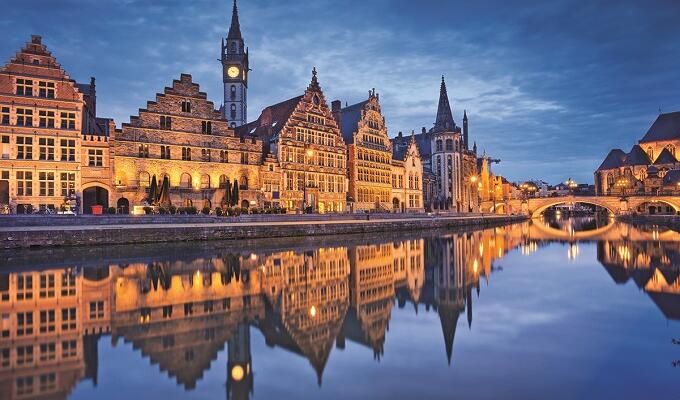
Ghent’s fair trade programme earns recognition, sets standard
Why making equitable commerce viable is a policy choice for the winner of the first EU Cities for Fair and Ethical Trade Award
Cities are home to half of the world’s population and 80% of global economic output. As their influence on the global economy expands, so does their impact on economic development and social and environmental sustainability. Trade is a means of creating unique and – if done right – sustainable opportunities. Actions that city governments take are vital in determining the effects trade will have on global consumption and production.
As part of its 2015 Trade for All trade and investment policy, the European Commission launched the European Union (EU) Cities for Fair and Ethical Trade Award. The aim was to raise awareness about fair, ethical and sustainable trade schemes at EU level in collaboration with local authorities and other stakeholders.
On 27 June the Belgian city of Ghent walked away with a stylish trophy and financial support valued at €100,000 ($134,000) from the Commission for a Ghent – and the International Trade Centre (ITC) – led fair and ethical trade project in the global South. Ghent not only sets the standard through a profound procurement policy, it also creates a climate in which entrepreneurs, knowledge institutions and civil organizations invest in fair trade.
The structural integration of fair and ethical trade into the city’s procurement policy is deeply rooted. A key step was taken with a master project on sustainable procurement in 2008, when the procurement policy was raised to a strategic level. From then onwards purchasing power contributed to the achievement of strategic goals.
The choices made resulted in a sustainable policy based on seven goals including the minimization of the ecological footprint throughout the entire lifecycle; and the integration and guarantee of international labour standards and fair trade principles throughout the supply chain.
However, Ghent does not only want to purchase in a sustainable manner. It also strives to impact the market positively. The purchasing power of public buyers provides strong leverage here. Therefore, Ghent joined an EU-funded programme to boost the sustainability of workwear contracts. The priority was on ethical standards and the principles of fair trade in the production of raw materials and in the manufacturing phase.
The final step was a pilot purchase by the city where the supplier signed a legally binding contract, in which it committed to working transparently and continuously improving compliance with labour rights, human rights and the payment of a living wage. As a result, the focus shifts from naked purchasing figures to a process striving for alternatives in the market. The developed multilingual toolbox for socially responsible workwear shares lessons learned and gives public purchasers a concrete tool to apply these principles.
The road ahead is long. Achieving transparency in the supply chain is a great challenge for suppliers as well as purchasers. Both parties must make an additional effort while taking into account international standards and complex lines of argumentation used by several actors. In the coming years, Ghent – in dialogue with the supplier of workwear – will invest in a continuous improvement journey. Going forward, the city will be exploring other product groups with a global supply chain and high social risks including information and communications technologies, and furniture.
Ghent makes clear choices in terms of its own procurement policy. Ghent Fair Trade – the result of collaboration between government and civil society – has set in motion the rest of the city. The project aims to raise awareness among citizens, support entrepreneurs and bring local stakeholders together. It is the driving force behind the city’s fair trade initiatives. Its aim is to ‘increase the consumption of fair products substantially (volume) and sustainably (long-term).’ Within this scope, Ghent focuses on consumers on the one hand and providers on the other to stimulate and connect the demand for – and supply of – fair trade products.
Mapping the current providers and their needs was a logical first step to take. Research into fair textile trade revealed the potential of campaigns and gave a better insight in the sustainability of purchasing behaviour. As a result of this process an innovative textile platform was established: During the Fair Fashion Labs, entrepreneurs, researchers and civil organizations meet up, share experiences and focus on a specific topic. Ghent-based entrepreneurs interested in scrutinizing their supply chains may join.
The next step was addressing the audience. Numerous activities for the general public aimed to boost the demand for fair trade products and highlight availability.
Initiatives such as a Fair Fashion Fest and the Fair Trade Walks make sure the available product range is highlighted in a fresh and original way. The past three editions of the Fair Fashion Fest welcomed a total of about 10,000 visitors. Launched in 2014, the Fair Trade Walks have already reached about 16,000 people. One of the driving forces behind the success of these initiatives is the broad support base. Under the motto ‘Fair trade in good company,’ Ghent collaborates with all possible stakeholders and succeeds to mainstream the fair trade story.



